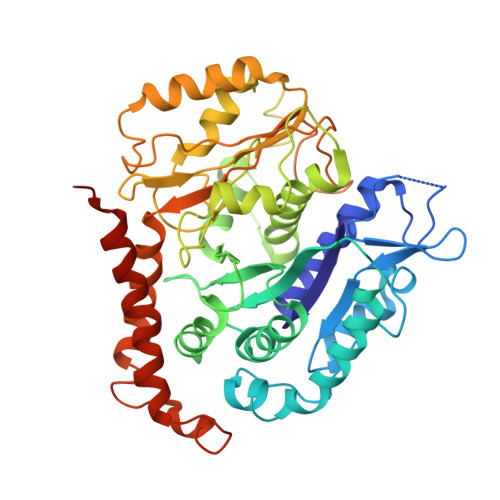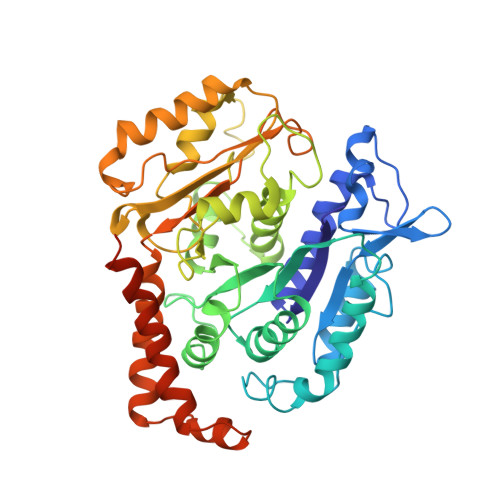Mitotic phosphorylation by NEK6 and NEK7 reduces the microtubule affinity of EML4 to promote chromosome congression.
Adib, R., Montgomery, J.M., Atherton, J., O'Regan, L., Richards, M.W., Straatman, K.R., Roth, D., Straube, A., Bayliss, R., Moores, C.A., Fry, A.M.(2019) Sci Signal 12
- PubMed: 31409757
- DOI: https://doi.org/10.1126/scisignal.aaw2939
- Primary Citation of Related Structures:
6I2I - PubMed Abstract:
EML4 is a microtubule-associated protein that promotes microtubule stability. We investigated its regulation across the cell cycle and found that EML4 was distributed as punctate foci along the microtubule lattice in interphase but exhibited reduced association with spindle microtubules in mitosis. Microtubule sedimentation and cryo-electron microscopy with 3D reconstruction revealed that the basic N-terminal domain of EML4 mediated its binding to the acidic C-terminal tails of α- and β-tubulin on the microtubule surface. The mitotic kinases NEK6 and NEK7 phosphorylated the EML4 N-terminal domain at Ser 144 and Ser 146 in vitro, and depletion of these kinases in cells led to increased EML4 binding to microtubules in mitosis. An S144A-S146A double mutant not only bound inappropriately to mitotic microtubules but also increased their stability and interfered with chromosome congression. In addition, constitutive activation of NEK6 or NEK7 reduced the association of EML4 with interphase microtubules. Together, these data support a model in which NEK6- and NEK7-dependent phosphorylation promotes the dissociation of EML4 from microtubules in mitosis in a manner that is required for efficient chromosome congression.
- Department of Molecular and Cell Biology, University of Leicester, Lancaster Road, Leicester LE1 9HN, UK.
Organizational Affiliation:





















